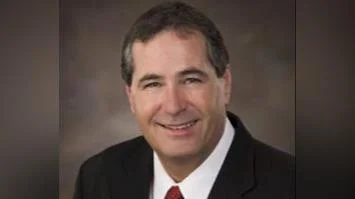Rep. Kelly Armstrong, U.S. Representative for North Dakota's At-Large Congressional District | Official Website
Rep. Kelly Armstrong, U.S. Representative for North Dakota's At-Large Congressional District | Official Website
Washington, D.C. — Today, Congressman Kelly Armstrong’s (ND-AL) amendment to return certain Northern Border Ports of Entry back to their pre-pandemic operating schedule passed the U.S. House of Representatives. The Armstrong Amendment (#1) to the Homeland Security Appropriations bill was cosponsored by Reps. Michelle Fischbach (MN-07), Russ Fulcher (ID-1), and Nick Langworthy (NY-23).
For North Dakotans, the amendment would cause the Carbury, Fortuna, Madia, Neehe, Noonan, Northgate, Satin John, Sherwood, Walhalla, Westhope, and Antler ports of entry to return to pre-pandemic operating hours and would prevent Customs and Border Protection (CBP) from using any resources to reduce those hours again.
“Since the onset of the COVID pandemic, CBP reduced the hours of many of the ports of entry to mitigate the spread of the virus,” said Rep. Armstrong. “Though the pandemic has long been over, those shortened hours have stayed in place. Bringing these ports of entry hours back to their pre-pandemic schedule will help our border patrol respond to a massive increase in border encounters and non-marijuana drug seizures in North Dakota, Idaho, Minnesota, and Western New York. Returning the operating hours will also alleviate some of the Biden Administration’s border pressures on our northern border patrol. I want to thank Rep. Fischbach, Rep. Fulcher, and Rep. Langworthy for joining me in leading this amendment and now I urge my colleagues in the Senate to swiftly take up the Homeland Appropriations bills and pass similar language.”
“Returning to reasonable hours of operation for our northern border ports of entry is crucial to local communities. Allowing for expanded lawful entry builds our economy, improves trade, expands our workforce, and brings additional tourism to towns in my district,” said Rep. Fischbach. “I am glad to see the restoration of extended open hours at our northern ports of entry included in this bill. Republicans are committed to securing our border from rampant illegal immigration impacting this country but we should not punish legal entry which is so important for our citizens and our economy.”
“The current reduced hours of operation at ports of entry in Idaho and other states are not only slowing the lawful facilitation of goods and international travelers but it is negatively affecting local economies,” said Rep. Fulcher. “I am pleased to be a co-sponsor of Rep. Armstrong's amendment as part of the Fiscal Year 2025 Homeland Security Appropriations Act to ensure we get Customs and Border Protection's ports of entry back to pre-pandemic hours.”
“The passage of this amendment is a victory for the hardworking people of Buffalo and Western New York bolstering our local economy and safeguarding countless livelihoods,” said Rep. Langworthy. “I’ve spent the day with our dedicated Border Patrol agents in the Buffalo Sector witnessing firsthand their crucial role in securing our borders as they ensure lawful trade and travel. This amendment supports their mission by providing necessary operational hours to effectively manage and secure our border.”
Background:
The amendment would defund implementing COVID-19 era guidance that reduces Customs and Border Protection's operating hours at certain Northern Border Ports of Entry.
According to CBP data both land encounters and drug smuggling have increased significantly over recent years. In fiscal year (FY) 2021 just over 27,000 illegal aliens were encountered by CBP officials along the northern border compared with 109,000 such encounters in FY 2022 and 189,000 in FY 2023.
Monthly encounters have also surged dramatically; specifically in January 2021 there were only 997 Northern land border encounters whereas by January 2024 there were 15,800 encounters.
Excluding marijuana drug smuggling has increased by 1,153% along this border between fiscal year 2021 and fiscal year 2023 with Fentanyl increasing by 141.7%, Ecstasy increasing by 329%, and Cocaine increasing by 2,787%.
###






 Alerts Sign-up
Alerts Sign-up